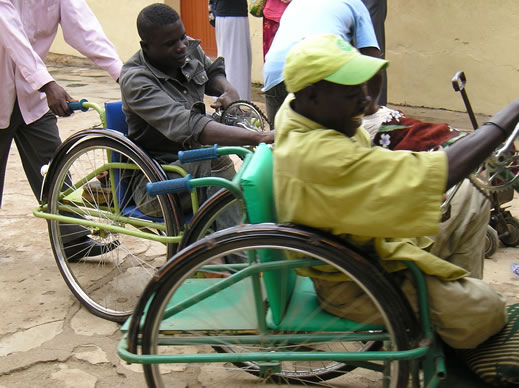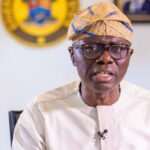
Persons With Disabilities have continued to demand inclusion into governance, opportunities, and access to healthcare and education in Gombe State.
Speaking, the state Chairman, Joint National Association for Persons With Disabilities, Dr Ishiyaku Adamu, said over the years members of JONAPWD, have suffered following the inability of the State Government to domesticate the National Disability Bill.
Adamu, a visually impaired Lecturer at Gombe State University, made this disclosure in an interview with journalists at a two-day stakeholders’ consultative forum meeting on the Gombe State Disability Bill.
Our correspondent reports that the meeting was organised by the Coalition of the Advocacy for Disability Act Cluster, Inclusive Friends Association, through the Strengthening Civic Advocacy and Local Engagements, implemented by Palladium and funded by USAID.
According to Adamu, Gombe is one of the 14 states in the Federation yet to domesticate the National Act, adding that the absence of enabling laws has affected the socio-economic development of PWDs.
He said, “Persons With Disabilities over the years have been neglected and they lack opportunities in almost all aspects of life. Today, we have come with stakeholders to talk about how Gombe State Government can support and sign the Gombe State Disability Bill, which has been done in 14 states so far across the country.
“The bill talks about free Education for people with disability, persons with disability lack opportunities so they are not educated.
“There is a relationship between poverty and disability, most of the parents of persons with disabilities lack funds to carter for their wards even those with opportunities they don’t see it as a priority they prioritise other things but if the government makes education free for PWDs it will go a long way to making persons with disabilities part of the society and not as liability for the community the same as healthcare PWDs are facing pre-existing health issues particularly those with Spinal cord injuries and the access to healthcare is very expensive.”
While lamenting limited access of the visually impaired to printed materials, he added, “It’s very difficult on average less than one per cent have access to published materials, most of the textbooks or reading materials in schools and even for leisure are not in a format that a blind person can read.
“When I was in school I had to visit Lagos to make an order for the braille format of government and other textbooks, after making the order I travelled back to the North, and I didn’t get it until I rounded off the Senior Secondary School Certificate Examination.
“I had to work double, rely on friends to pass without the braille format.”
Delivering her welcome remarks, Executive Director of IFA, Grace Jerry, who was represented by Moses Oluwaseyi, expressed optimism about the Cluster towards ensuring that persons with disabilities live a fulfilled life through an accessible system and structure which is rooted in inclusive legislation which informed this meeting to review the Gombe state Disability Bill.
She disclosed that stakeholders’ were focused on legislation that protects the rights and drives accountability from State and Non-state actors towards creating accessible systems and structures that would in return lead to the development and growth of the state.
“In the same vein, the ADAC call for speedy passage of the bill by the Gombe State House of Assembly and the Executive Governor of Gombe State, His Excellency Muhammadu Inuwa Yahaya, to enlist himself among the community of inclusive governors by prioritising and ensuring that, the Gombe State Disability Bill see the light of the day through his assent.
“This plea includes the establishment of a Disability Commission for the state which will help drive implementation of the Bill when it becomes a law,” Jerry said.





